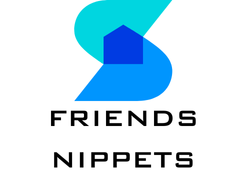Understanding Ethical AI in Open-World Games
Ethical AI refers to the practice of developing artificial intelligence systems that adhere to moral guidelines and reflect societal values. In the realm of open-world games, ensuring ethical AI is crucial, as these expansive virtual environments allow players to experience unprecedented levels of freedom and creativity. The complex interactions between NPCs (non-player characters) and players require a nuanced application of AI design principles to create fair and engaging experiences.
Open-world games pose unique challenges to AI developers. Unlike linear game environments, the unpredictability and vastness of open-world settings demand that AI systems are not only reactive but also adaptable to varied player decisions. This requires technologies that can simulate genuine emotions and ethical reasoning in non-linear narratives. Designing such AI systems involves a delicate balance of creating characters that exhibit realistic behaviour while maintaining control over potentially disruptive actions.
Also to see : Unlocking Personalized Player Journeys: The Role of AI-Driven Analytics in Mobile Gaming
Historically, ethical considerations in digital game development have evolved alongside advances in AI technology. Initially, the focus was on avoiding overtly harmful behaviour. However, as gameplay dynamics and AI capabilities have become more sophisticated, developers are now keenly aware of the impact these systems can have on player perceptions and ethical decision-making within games.
Core Ethical Principles for AI Development
Understanding the core ethical principles is crucial for ensuring responsible AI development. Fairness in AI behaviour and decision-making emerges as a primary concern. Fairness implies that AI systems should make decisions without bias, promoting equality and avoiding discrimination. Ensuring this involves scrutinizing the data sets and algorithms that feed into AI systems, avoiding those that reinforce systemic biases.
Topic to read : Unlocking Endless Adventures: Enhancing RPG Quest Diversity with AI-Driven Procedural Generation
Transparency plays a vital role in building user trust. It involves clearly explaining how AI systems operate, allowing users to understand the processes behind AI decision-making. Transparency can be challenging due to complex algorithms, but is essential for accountability. An AI system that demonstrates transparent operations provides insights into how conclusions are reached, thus enabling users to assess its reliability.
Accountability in AI development ensures that there is a framework in place to evaluate and address the outcomes of AI decisions. It means establishing measures to hold AI systems and their developers accountable for their actions. This principle ensures that AI systems are deployed with the intention of open responsibility, fostering trust and minimizing risks.
Ultimately, integrating these ethical principles will contribute to safer and more reliable AI technologies. These principles guide the ethical landscape of AI, emphasizing responsibility in technological advancements.
Best Practices for Implementing Ethical AI
Implementing ethical AI in game design requires a strategic approach to ensure the technology remains aligned with ethical guidelines. The initial step is to establish an ethical framework during the design phase. This framework outlines principles such as fairness, accountability, and transparency, serving as a guiding developer strategy throughout the development process.
Incorporating player feedback is also crucial in shaping AI behavior. By actively seeking and integrating players’ opinions, developers can adjust AI algorithms to meet ethical standards that resonate with the gaming community. This feedback loop not only enhances the gaming experience but also ensures that AI systems evolve responsibly over time.
To maintain ethical compliance, developers are advised to adopt rigorous techniques for testing AI algorithms. These methodologies include simulation-based assessments and fairness metrics, which help detect biases and discrepancies in AI behavior. Adopting game design best practices ensures that AI systems operate within the predefined ethical parameters.
By following these strategies, developers can create games that not only entertain but also promote ethical conduct, fostering a more inclusive gaming environment. Ultimately, adhering to ethical guidelines in AI development is essential for building trust and ensuring positive user experiences.
Case Studies of Ethical AI in Action
When examining case studies of ethical AI, it’s important to highlight how industry examples have integrated these practices into successful implementations. For instance, a renowned game developer crafted an award-winning title by employing ethically-designed AI to enhance player engagement while ensuring fair gameplay. This successful implementation demonstrates how thoughtful AI integration can lead to positive outcomes.
In contrast, some developers have faced challenges due to inadequate ethical frameworks. Lessons learned from these failed implementations often point to the neglect of unbiased programming and lack of diversity in training datasets. Such missteps emphasize the necessity for ongoing ethical assessment to prevent potential pitfalls.
By comparing different strategies, we gain insight into how leading developers navigate AI ethics. One approach involves embedding diverse perspectives during the development phase, fostering inclusive AI systems capable of respecting player privacy and promoting fair play. Another involves continuous monitoring and adjustment of AI algorithms to maintain ethical integrity as player interactions evolve.
In summary, through analyzing successful and failed attempts, it becomes evident that a comparative study grants valuable lessons in crafting AI that upholds ethical standards, benefiting both developers and users alike.
Common Pitfalls in AI Design
In the realm of AI development, avoiding common pitfalls is crucial to achieving ethical and effective results. Missteps often occur when there is an oversight in ethical considerations. This can lead to significant consequences, such as biased decision-making, privacy violations, or even safety risks. These issues not only jeopardize user trust but can also result in legal and reputational damages for the organisations involved.
The first step to preventing unethical behaviour in AI systems is thorough risk assessment. Evaluating development challenges early can guide teams to recognise and sidestep potential biases in data collection and model training. Additionally, incorporating checklists and guidelines that prioritise ethical AI development helps in identifying mistakes to avoid before they happen.
Moreover, involving diverse teams can provide perspectives that mitigate risks associated with blind spots in development processes. Open communication with stakeholders regarding AI behaviours might also lessen the impact of undisclosed features. It is important to foster an environment where feedback is encouraged and acted upon promptly. Regular audits and ethical reviews ensure AI remains aligned with both societal norms and user values.
By adopting these strategies, developers can reduce the occurrence of undesired outcomes and preserve the integrity of AI solutions.
Tools and Resources for Developers
Navigating the world of ethical AI development can be daunting, but a plethora of developer resources and AI tools are available to aid you. While ethical considerations are nuanced, the right tools can provide clarity and enhance your capabilities.
Numerous AI tools exist to help developers implement ethical practices. These include software applications focused on bias detection and fairness assessment, allowing you to evaluate AI models’ performance against ethical standards. Widely used tools like Fairness Indicators and AI Fairness 360 offer intuitive platforms for identifying and mitigating bias in datasets and algorithms.
Beyond software, educational materials are abundant. Engage with webinars hosted by industry leaders, read insightful articles, or enroll in comprehensive courses designed to build expertise in ethical AI development. These resources offer critical insights into practical implementation, equipping you with necessary skills and knowledge.
Supportive communities are invaluable resources for developers embarking on this journey. Networks focusing on ethical AI—such as forums and collaborative platforms—enable developers to exchange information, share best practices, and collectively troubleshoot challenges. These interactions foster a deeper understanding and create a collaborative environment for ethical AI advancement. Access these tools, resources, and communities to confidently build ethical AI solutions.
Navigating Future Challenges in AI Ethics
The future of AI promises advancement, yet portrays a complex map loaded with evolving standards and ongoing challenges. As AI technologies grow, emerging trends reveal ethical implications that need attention. For instance, AI systems are becoming more autonomous, raising questions about accountability and transparency. Who is responsible when an AI makes a mistake? This lack of clarity can leave users vulnerable, making it critical to define roles within AI-controlled environments.
To stay ahead in this dynamic landscape, developers should proactively address these ethical concerns. This involves implementing ethical frameworks during the AI system design phase, ensuring data privacy, and adhering to fairness principles. Continuous reassessment is vital, as these frameworks must adapt to technological developments.
Moreover, the importance of collaboration within the industry cannot be overstated. Shared goals in crafting consistent and robust standards resonate with both developers and users. By coming together, both can establish authoritative guidelines that prioritize ethical AI usage. Open communication channels between different stakeholders foster innovation while safeguarding moral integrity, leading to a trustworthy AI ecosystem. This synergy ultimately supports a progressive and ethically-responsible future in AI.











